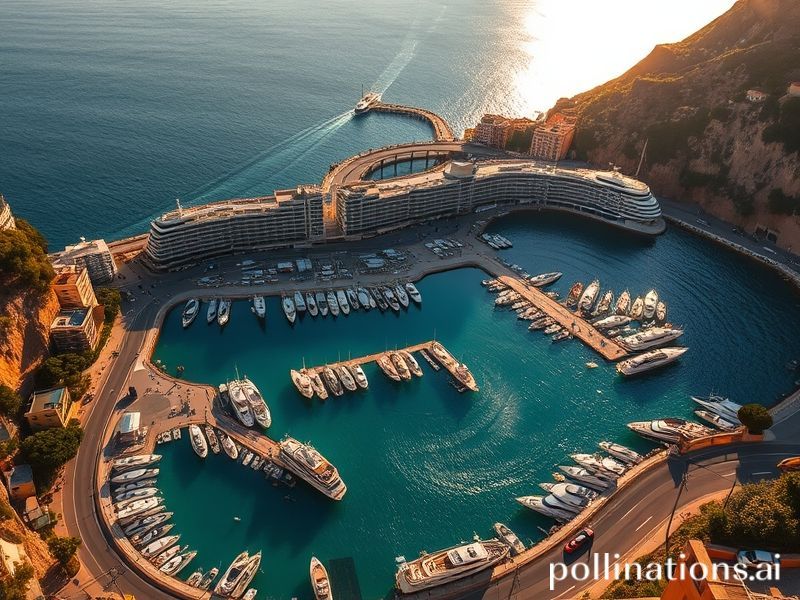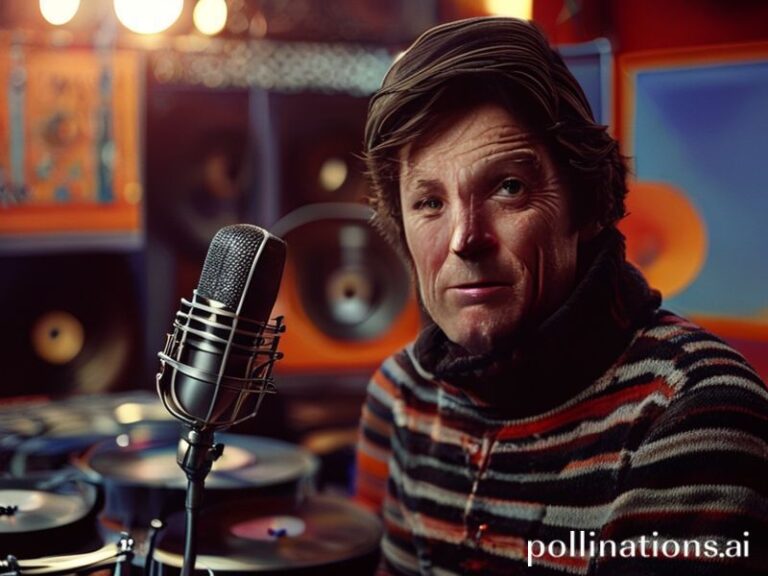Monaco: The Velvet Vault Where the World’s Money Goes to Tan
MONACO—If you squint from the terrace of the Hôtel de Paris, the principality looks like a Fabergé egg that learned to walk. Two square kilometers of cliffside tax efficiency masquerading as a sovereign state, Monaco is what happens when a spreadsheet buys a yacht and decides to declare independence. The locals—those 38,000 humans and at least as many shell companies—will tell you Monaco is “cosmopolitan,” which is Mediterranean for “no inconvenient poor people.”
Globally, the micro-nation is less a country and more a premium subscription tier to France. Paris still handles its defense, its currency, and, if rumors are true, its moral compass (which arrives via courier every Tuesday). Yet Monaco’s outsized footprint on the world stage is precisely because it has mastered the dark art of sovereign branding. While larger states argue about tariffs, Monaco quietly sells the concept of being “elsewhere”—a perpetual, climate-controlled non-place where Russian oligarchs, Colombian energy heirs, and Silicon Valley apostates can park capital, Lamborghinis, and occasionally themselves.
The carbon footprint of one average Monaco resident, according to a study that was quickly buried under non-disclosure agreements, equals that of a mid-sized Sub-Saharan nation. But the principality offsets this by planting geraniums on every balcony and hosting the e-Prix, an electric-car race that allows the ultra-wealthy to watch the future speed past while seated in yesterday’s leather. It is sustainability as performance art, and the critics—those who can still afford opera tickets—give it a standing ovation.
Every May the Formula 1 circus descends, transforming the public roads into a slot-car track for the amusement of watchmakers and cryptocurrency exchanges. The race itself is mostly processional—passing is theoretically possible but socially discouraged—yet it serves as Monaco’s annual open house for the world’s kleptocrats. They arrive by helicopter (landing on reclaimed sea that used to belong to fish), inspect the latest floating architectural statements moored in the harbor, and toast the fact that their money, like the wine, never travels economy.
Monaco’s genius is not in breaking laws but in writing them first. Its 1869 abolition of income tax—originally a desperate gambit to keep the House of Grimaldi from bankruptcy—became the prototype for every palm-fringed zero-percent jurisdiction that followed. Today, the OECD scolds, Brussels threatens, and journalists write exposés. Monaco nods politely, adjusts the cufflinks of its bespoke regulatory regime, and waits for the next wave of anxious capital to wash ashore.
Meanwhile, the planet’s widening wealth gap has turned the principality into a barometer of global anxiety. When sanctions bite in Moscow, helicopter traffic to Nice airport spikes; when Chinese capital controls tighten, the real-estate agents of Monte Carlo work overtime; when American tech bros start fearing breakups, the notaires dust off deeds for “modest” €40 million pied-à-terres. Monaco does not cause these tremors, it merely sells premium seats for the end of the world.
And yet, for all the cynicism it invites, Monaco remains weirdly honest about what it is. There are no Potemkin villages here; the villages are simply priced out of reach. The façade is the product, proudly displayed behind bulletproof glass and watered twice daily. In an era when nations brand themselves as “start-up ecosystems” or “green superpowers,” Monaco’s refusal to pretend it is anything other than a velvet-lined safety-deposit box feels almost refreshing—like a Bond villain who skips the monologue and simply sends the invoice.
As the Mediterranean warms and sea levels rise, the principality is already planning the next expansion: more artificial peninsula, more berths for more boats, more square footage for more money. Climate change is just another market inefficiency, and Monaco will arbitrage it while the rest of us argue about recycling bins. In the end, the world gets the tax shelters it deserves, and Monaco is simply the most photogenic receipt.







